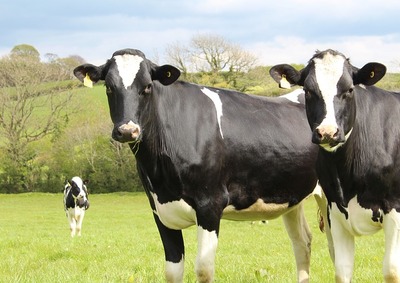New Report Finds Wisconsin's Ag and Food Processing Sectors Play Vital Role in State's Economy
Thursday, November 21st, 2024 -- 10:00 AM

(Blake Jackson, Wisconsin Ag Connection) Wisconsin's agriculture and food processing sectors play a vital role in the state’s economy, contributing 14.3% of the total economic impact.
According to Blake Jackson with the Wisconsin Ag Connection, these industries generated $116.3 billion in revenue in 2022, reflecting a 10.9% increase since 2017.
They also supported 353,900 jobs, representing 9.5% of Wisconsin’s workforce, and contributed $21.2 billion to labor income. The dairy industry, with its focus on cheese production, remains a cornerstone of the state’s agricultural economy.
It contributed $52.8 billion in revenue and 120,700 jobs in 2022, accounting for 6.5% of the state’s economic activity and 3.3% of all jobs. Despite a decline in dairy farms, Wisconsin's milk production rose by 5.9%, from 30.3 billion pounds in 2017 to 32.1 billion pounds in 2022, outpacing the national growth rate of 4.4%.
The Contribution of Agriculture to the Wisconsin Economy report, authored by researchers from UW–Madison, highlights key trends. Food processing continues to grow, even as farm numbers and agricultural jobs decline.
Between 2017 and 2022, the number of food processors, including beverage manufacturers, increased, while dairy farms saw a sharp drop, declining by 29.8% from 9,304 to 6,533.
Over the past 25 years, Wisconsin lost 70.2% of its dairy farms, a faster decline than the national average. However, the number of dairy cows decreased only slightly, by 1.3%.
The report also found a decline in agricultural employment, dropping from 437,700 jobs in 2017 to 353,900 in 2022, a reduction of 19.1%. Labor income fell by 5.5%, while total income showed a modest increase, reaching $37.78 billion in 2022.
Food processing contributed significantly, generating $107 billion in revenue and 298,400 jobs, with beverages playing a major role. Wisconsin’s agricultural economy is adapting to changes, with growth in value-added processes and food processing offsetting declines in traditional farming.
The dedication of farmers and processors continues to drive innovation, maintaining agriculture as a key pillar of the state’s economy.
Feel free to contact us with questions and/or comments.




